Fairytale K-Drama Turned Trauma Bonding Session || It's Okay Not To Be Okay
https://images.ecency.com/DQmNxqKyNJnCQKHrnXt8ks9atdNErkpkcmXzt1m87mJ35QE/saikojiman_gwaenchanha_306270712_large.jpgImg Source
Gosh, that drama took a huge toll on me. It wasn’t just a watch; it was an experience. I laughed, I cried, I got uncomfortable, and then I cried some more. I only pressed play because, well, Kim Soo-Hyun. That man has owned me since Moorim School. And Seo Ye-Ji? One of my favorites.
**Storyline**
At first glance, I thought it would be another cute K-drama with quirky tropes, but no. This one was different. It had that dark, eerie fairytale vibe from the start, almost Tim Burton-ish.
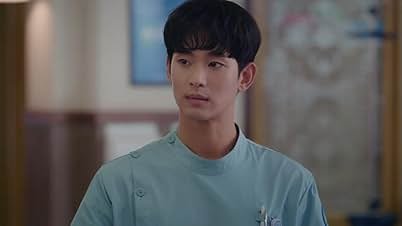
The story follows Moon Gang-Tae (Kim Soo-Hyun), a caregiver who sacrifices his own happiness to look after his autistic older brother, Sang-Tae, and Ko Mun-Yeong (Seo Ye-Ji), a children’s book author with a sharp tongue, a dark past, and the emotional stability of a hurricane.
Their worlds collide in the messiest way possible. Him, always holding back; her, never holding back at all. And in between all that chaos, the show weaves childhood trauma, healing, mental illness, and family scars into one giant storybook that feels like it’s reading you while you’re reading it.
**My Experience: What Actually Happened**
Let me be honest: this show dragged me. By episode three, I was already emotionally tired. I’d pause an episode, walk around my room like I’d just fought someone, then come back and hit play again. At one point, I legit sat staring at my laptop screen at 2 a.m., tears running down my face, wondering why I voluntarily chose pain as entertainment. But the thing is, I couldn’t stop. The story felt too raw.
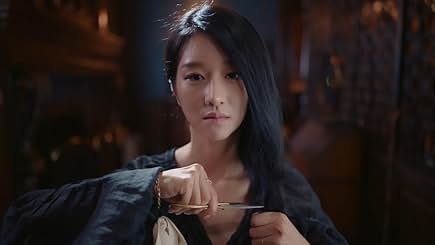
Whenever Mun-Yeong spiraled into her darkness, it reminded me of how real these things are, the anger, the fear of abandonment, the way you sometimes push people away before they can leave you. And the part where it's not even within your control, it's just what happens when you have ADHD, OCD, Bipolar Disorder, etc. This is some people's reality, and it's REAL.
And Gang-Tae? His endless self-sacrifice felt like looking at my reflection on bad days. Carrying everyone’s burden but forgetting myself in the process. It was just too much, yet so real.
**Standout Performances**
Let me scream about Seo Ye-Ji for a second. That woman ate. Her voice, her walk, the coldness in her eyes, it was like she was built for that role. And her bluntness? I remember that one part she yelled 'that explicit word' in public, it was hilarious. She loves messing with Gang Tae. Her fashion sense in this K-drama is to-die-for.

My goodness, I still have some images from her scenes saved in my Pinterest board as fashion inspo.
And Kim Soo-Hyun? He doesn’t just cry; he weeps with every muscle in his face. If you don’t feel something when he breaks down, check your pulse.
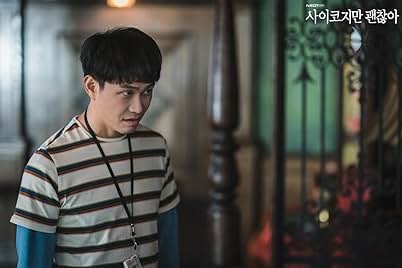
But the real scene-stealer for me was Oh Jung-Se as Sang-Tae. Playing an autistic character is tough, it can so easily slide into caricature or insensitivity. But he carried it with so much heart and depth that sometimes I forgot I was watching an actor. His innocence, his fears, his little victories, he made me laugh and cry in the same breath.
These guys deserve more than just a round of applause!
**The Overwhelming Bit**
Here’s where it got to be “too much”: the metaphors. The fairytales inside the drama were so hauntingly beautiful but also gut-wrenching. Each one was basically trauma wrapped in a bedtime story.
The way Mun Yeong (Ye-Ji) would fixate on something. Some would see that in modern day as passion, yet this same thing can be an obsession. It all depends on the mental angle from which it's being viewed.
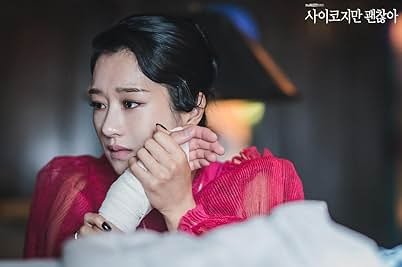
I’d hear a line and suddenly feel like I was ten years old again, remembering things I thought I buried. It was overwhelming because it didn’t let me hide. It forced me to sit with uncomfortable truths about pain, healing, and how brokenness doesn’t disappear just because you find love.
And the representation of what it means to be autistic or to have an autistic family member, it was so so so so heartbreaking to watch Sang-Tae's meltdowns. To be the eldest yet with the memory of a five-year-old. Although autism can be presented in different forms based on the spectrum, however, the way it was represented in this movie is one of the most common spectrums, and it was so emotional to watch. To watch him struggle with understanding and recognizing emotions, wounded by the trauma of the past, difficulty accepting someone else as a family and the struggle of bearing the cross of being the eldest that has to be taken care of by the youngest.
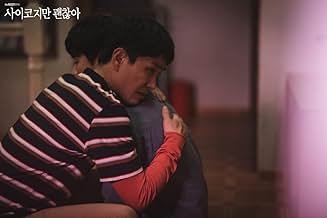
Gosh, it was overwhelming, emotionally.
**Final Thought**
Would I watch it again? Probably not, not because it wasn’t good (it’s brilliant) but because it’s not the kind of drama you casually rewatch. It’s heavy. It’s spicy food levels of heavy, you love it, you respect it, but you don’t eat it every week. It’s Okay Not To Be Okay overwhelmed me, drained me, and at the same time, stitched a small part of me back together. It was too much, but maybe that’s why it was exactly what I needed. If I re-watch it, it'd probably be for the fashion of Mun Yeong, the humor, and her bluntness.
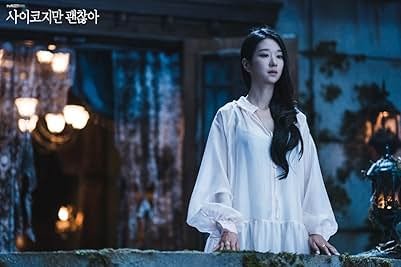
All images except the first are from IMDb